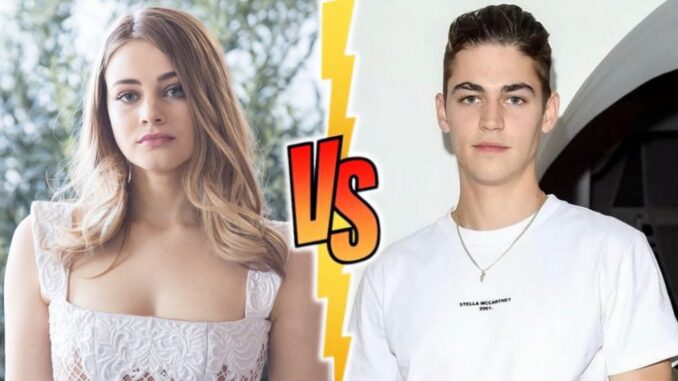
The air crackles with an electric current when a man like Hardin Scott enters the room. He’s the tempest in human form, a walking paradox of alluring darkness and raw, untamed passion. He’s the literary bad boy personified, a character whose very existence on the page sets hearts racing and imaginations alight. He challenges, he frustrates, he loves with a possessive ferocity that feels, to a romantic reader, like the ultimate affirmation. So, if Hardin existed in real life, would I date a man like him? The honest, hard-won answer, after much deliberation and a good dose of reality, is a resounding and unequivocal no.
To understand why, one must first acknowledge the undeniable pull. In the sheltered confines of fiction, Hardin is a siren call to the part of us that craves intensity, that yearns for a love so potent it borders on obsession. His intelligence, his unexpected literary knowledge, his moments of profound vulnerability where he lets his guard down just enough to reveal the wounded boy beneath the bravado – these are the glimmers that make him captivating. He’s a project, a puzzle, a wild thing that only you, the protagonist, can tame. He makes you feel things you never knew you could feel, dragging you through the full spectrum of human emotion, from breathtaking elation to soul-crushing despair. There’s a certain thrill in the danger, a rebellious fantasy in defying conventional wisdom to be with the man everyone else warns you against. For a brief, intoxicating moment, the idea of being the one to unlock his heart, to soothe his demons, feels like the most epic love story imaginable.
But then, the intoxicating mist of fantasy dissipates, and the harsh glare of reality illuminates the true landscape of such a relationship. A man like Hardin Scott is a constant storm front. His passion, so alluring on paper, translates into explosive anger, jealousy, and possessiveness in real life. Imagine the walking on eggshells, the careful curation of your words to avoid triggering an outburst, the constant anxiety of whether he’ll explode in public or retreat into a brooding silence that feels heavier than any argument. His intense love would, in reality, morph into suffocating control, questioning your friends, your choices, your very independence.
The constant drama, the relentless cycle of push and pull, the hurtful words flung in anger and the grand gestures of apology that follow – this isn’t romance; it’s emotional whiplash. My own well-being would erode under such relentless pressure. My self-esteem would be chipped away by his manipulations and gaslighting. My friends would stage an intervention, and my family would watch with concern as I became a shadow of my former self, constantly trying to fix, to understand, to appease a man whose internal chaos is his own responsibility to manage, not mine.
The crucial distinction between fiction and reality lies in perspective. As a reader, I am a spectator. I can witness Hardin’s destructive behavior and Tessa’s suffering, knowing there’s an author guaranteeing a resolution, however painful the journey. I can empathize with Tessa’s resilience without having to personally endure the emotional abuse. I can appreciate Hardin’s character arc without having to live through his lowest, most toxic moments. In real life, however, there is no omniscient narrator, no guaranteed happy ending. There is just the raw, unscripted reality of enduring emotional torment, of sacrificing your peace for someone else’s unending drama.
Dating a man like Hardin Scott in real life would mean choosing a life of perpetual crisis over peace, of constant validation-seeking over self-assurance, of hoping for change rather than demanding respect. While the fantasy of taming the wild beast holds a certain appeal, the reality of living with a perpetually angry, manipulative, and self-destructive individual is simply not sustainable.
So, while I can appreciate the literary archetype of Hardin Scott, his intensity, and the dramatic narrative he fuels, I would keep him firmly within the pages of a book. In real life, I choose tranquility over turbulence, respect over raging passion, and a partner who offers stability and mutual growth rather than a relentless emotional rollercoaster. The allure of the dark, brooding hero is powerful, but the wisdom of self-preservation is far greater.
